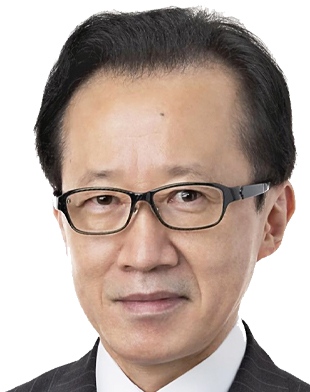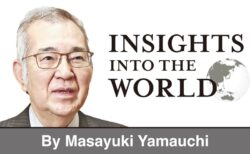11:00 JST, July 26, 2024
The 2024 Paris Olympic Games will kick off on Friday. The French capital is hosting the Summer Games for the first time in 100 years and for the third time after doing so in 1900 and 1924. Each of the previous Games has gone down in history as a key event for Paris and France.
The 1900 Games took place about 110 years after the French Revolution. They were held in tandem with the 1900 Paris Exposition, which displayed modern France’s progress in culture, science, and technology. The 1924 Games coincided with the post-World War I reconstruction period, symbolizing France’s rehabilitation and an “era of peace” that would last until the next world war.
The latest Games will demonstrate the host city’s commitment to prioritizing sustainability and environmental protection in its Olympic operations by effectively using renewable energy.
The opening ceremony site and many of the Games’ competition venues are located along the Seine. The river reminds me of the city of Paris’s coat of arms, which shows a sailing ship on waves and bears the Latin phrase “FLVCTVAT NEC MERGITVR” (Fluctuat nec mergitur), which translates to “tossed by the waves but does not sink.”
This refers to the fact that river transportation on the Seine enabled the development of Paris and that the French capital and its population had the strength to continue to prosper, enduring any hardship and not sinking.
Relations between Paris and the nation of France are complex. Some people say, “Paris has always threatened the state.” During the French Revolution that began in 1789, Paris was the heart of the revolution, which led to the abolishment of the French monarchy.
In 1871, Parisians established the Paris Commune, a short-lived autonomous government under the dictatorship of the proletariat, defying the central government. The liberation of Paris in 1944 by Allied troops during World War II ultimately led to the end of the Nazi regime. In the 1980s, Paris Mayor Jacques Chirac, who led the Gaullist group and would later become president of France, was at odds with President Francois Mitterrand’s Socialist administration. From time to time, Paris has been the symbol of either national or anti-national power because it serves as the center of France’s politics, economy, and culture.
France’s unique diplomacy
This summer’s Olympic Games is a massive project undertaken jointly by the French government and the city of Paris. They have been working together closely to prepare for the Games to boost France’s international image and promote urban development. For France, the Olympiad is a crucial opportunity to enhance national prestige in various ways — from disseminating France’s culture and history and its cutting-edge approach to technological development and environmental protection to promoting a symbol of international peace and cooperation. How will France contribute to pursuing global peace through the Games amid the increasingly chaotic international situation?
France boosts its national prestige through efforts toward international peace and cooperation based on its security principles, which have existed since 1958 when Gen. Charles de Gaulle established the Fifth Republic.
Under the first principle, France has its nuclear deterrence. The de Gaulle administration conducted France’s first atomic test in 1960.
The second principle requires France to strengthen its national defense capabilities without depending on the United States. France was a founding member of the North Atlantic Treaty Organization in 1949, but it withdrew from its military structure in 1966 under de Gaulle’s presidency. In 2009, it fully returned to NATO. However, it retained a certain level of independence by choosing not to join the alliance’s Nuclear Planning Group (NPG), which oversees NATO war drills that presume the use of nuclear weapons.
The third principle is to keep Europe’s regional unity on track. France aspired to emerge as a regional power independent of the United States and the then-Soviet Union. France supported Europe’s political and economic integration. As a result, France and Germany have been driving forces for the European Union.
The fourth point is France’s relationship with China. France became the first major Western power to formally recognize the People’s Republic of China in 1964, well ahead of Japan and the United States. France wanted to see a multipolar international order instead of a world polarized between the United States and the Soviet Union. For France, strengthening relations with China has been just part of its strategy for promoting a multipolar world.
French President Emmanuel Macron invited Chinese President Xi Jinping to visit France as a state guest on May 5-7 this year to mark the 60th anniversary of establishing diplomatic relations. One purpose of Xi’s visit was to create “a multipolar world less influenced by the United States,” a goal that surprisingly coincides with France’s traditional foreign policy.
Japan-France ties deepening
Macron held talks on May 2 with Prime Minister Fumio Kishida in Paris just before the arrival of Xi. They agreed to start negotiations on the Japan-France Reciprocal Access Agreement (RAA), which will facilitate joint exercises between the Self-Defense Forces and the French military. This means that France, while fostering close ties with China, also showed consideration for its security cooperation with Japan, which is concerned about the rise of China.
In recent years, Japan and France have strengthened bilateral defense cooperation through regular defense dialogues, joint exercises, joint research and development of defense equipment, and the conclusion of the Japan-France Acquisition and Cross-Servicing Agreement (ACSA).
For his part, Macron set out France’s “Indo-Pacific strategy” in 2018. This strategy is similar to Japan’s concept of a free and open Indo-Pacific, which focuses on ensuring the rule of law and freedom of navigation.
France is also a key Indo-Pacific state, considering that it has military bases in its Pacific territories of New Caledonia and French Polynesia and actively deploys military personnel and assets to the region.
France deployed a Rubis-class nuclear-powered attack submarine to the Pacific in 2021 and plans to deploy the nuclear-powered aircraft carrier Charles de Gaulle to the region in 2025. The French flattop is expected to participate in joint operations with U.S. aircraft carriers to enhance strategic interoperability between the two forces.
Given China’s coercive maritime expansion, Japan and France have much to do together. For example, the two countries should jointly manage Japan-developed US-2 amphibious rescue aircraft to reduce operational costs and carry out joint maritime surveillance missions.
Regrettably, a NATO proposal to open a liaison office in Tokyo has not been realized due to France’s opposition. France has extensive exclusive economic zones (EEZs) in the Pacific and maintains several islands as its territories. France will suffer economic harm if China’s coercive maritime expansion disrupts the order in the Indo-Pacific region. France must also ensure the region’s stability to protect and utilize seabed resources such as nickel and manganese nodules.
Undoubtedly, Europe, the United States and Japan will deepen their cooperation across the Pacific and Atlantic oceans within the frameworks of NATO and the Japan-U.S. alliance. In that case, their deterrence power will markedly increase. I want France to understand the importance of such enhanced deterrence.
The Olympic Games are likely to boost national prestige among the French people. Can that mood trigger France’s increased engagement in the Indo-Pacific region? Now is the time for Japan to promote bilateral cooperation with France and carry out strategic diplomacy, aiming to improve the security environment that surrounds it.

Shigeru Kitamura
Kitamura joined the National Police Agency in 1980 after graduating from the University of Tokyo. He became director of Cabinet Intelligence in 2011 and served as secretary general of the National Security Secretariat from 2019 to 2021. Earlier in his career, he studied at France’s Ecole Nationale d’Administration (ENA) and worked as the First Secretary at the Japanese Embassy in Paris. In 2022, the French government made him an Officer of the Legion of Honor.
The original article in Japanese appeared in the July 21 issue of The Yomiuri Shimbun.
Top Articles in Editorial & Columns
-

Riku-Ryu Pair Wins Gold Medal: Their Strong Bond Leads to Major Comeback Victory
-

40 Million Foreign Visitors to Japan: Urgent Measures Should Be Implemented to Tackle Overtourism
-

China Provoked Takaichi into Risky Move of Dissolving House of Representatives, But It’s a Gamble She Just Might Win
-

University of Tokyo Professor Arrested: Serious Lack of Ethical Sense, Failure of Institutional Governance
-

Policy Measures on Foreign Nationals: How Should Stricter Regulations and Coexistence Be Balanced?
JN ACCESS RANKING
-

Japan PM Takaichi’s Cabinet Resigns en Masse
-

Japan Institute to Use Domestic Commercial Optical Lattice Clock to Set Japan Standard Time
-

Israeli Ambassador to Japan Speaks about Japan’s Role in the Reconstruction of Gaza
-

Man Infected with Measles Reportedly Dined at Restaurant in Tokyo Station
-

Videos Plagiarized, Reposted with False Subtitles Claiming ‘Ryukyu Belongs to China’; Anti-China False Information Also Posted in Japan
























